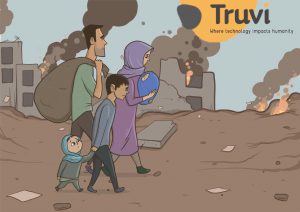Climate Action


Home » Uncategorized » SDG 13 -Israel at Glasgow Climate Talks
SDG 13 -Israel at Glasgow Climate Talks
The entire world appears to be focused these days on COP26, the UN Climate Change Conference 2021 taking place in Glasgow between October 31-November 12. That includes Israel, of course, with a 120-strong delegation headed by the Prime Minister (as well as its own Climate Innovation Summit side event). Leading up to the summit, the Government officially declared climate change a national security issue.
Another failure by the international community to join forces against growing threats to the environment would be no less than tragic; nevertheless, states will still have a responsibility to put their own affairs in order. Israel is no different.
While preparing the country for the increasing challenges is obviously a multi-disciplinary task, Israel’s Environmental Protection Minister is key to the effort. In a recent interview, she indicated just how broad the scope of her work is: “We are working on new climate legislation for the first time in the Israeli parliament. We are working on the series of implementation plans, how to take the low carbon economy governmental declaration and make it a reality in sectors of energy, transportation, waste, agriculture. So we are serious.”


The challenges remain enormous. The Ministry’s recently published “Environmental Impact Index” demonstrates, yet again, precisely why Israel must remain serious; the new report exposed numerous heavyweight offenders among the more than 120 plants, 49 companies and 700 gas stations reviewed. Another report issued recently by the Eilat-based Interuniversity Institute for Marine Sciences with regard to the Gulf of Eilat pointed to rising surface sea temperatures, trash concentrations on the seabed (1,000 times greater than in the Mediterranean Sea), as well as serious damage to corals (caused by a significant March 2020 storm).
Israel also faces a long recognized challenge of accommodating a growing population while protecting the environment of a relatively small land mass. As indicated by a recent piece in “Haaretz,” the country will need to balance between preserving open spaces with a similar need to use those open spaces for renewable energy facilities such as solar panels and wind turbines – all the while continuing to allow the sun to reach agricultural fields.
Meanwhile, a chilling 659-page report just released by the State Comptroller claims that the country is sorely unprepared for the challenges of climate change. While the study deals with the failings of previous governments, its findings are clearly not an ideal backdrop for the arrival of Israel’s delegation to the summit.
Related articles


SDG 13 – Where Technology Impacts Humanity
Climate Action Lacking grit, brawn or physical prowess, Artificial Intelligence has become an unlikely new superhero, coming to the rescue in natural disasters to assist


SDG 13 – What’s New Under the Climate Action Sun?
Climate Action It’s that time again: the UN Secretary General reiterated his warning about the worsening climate crisis to the annual General Assembly in New


SDG 13 – Social Impact in New Hands
Climate Action It’s been a couple of weeks since Israel’s new Government took office. That certainly isn’t enough time to gauge which way the SDG


















